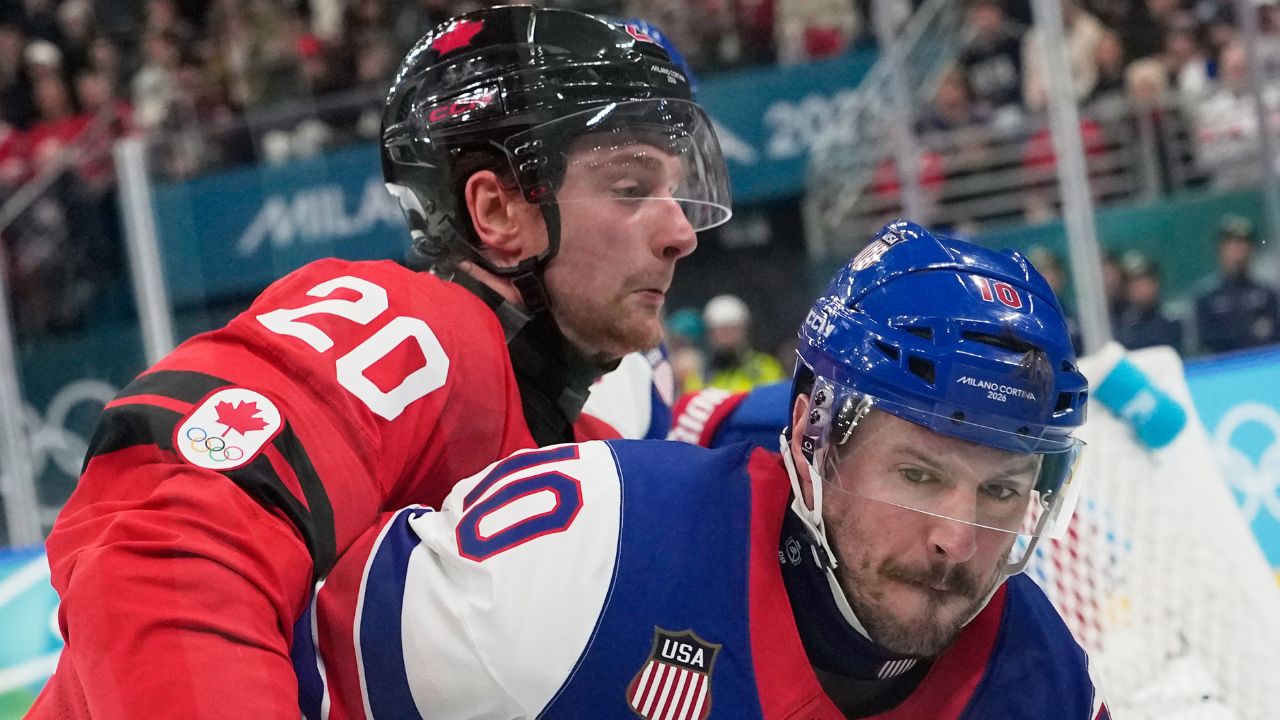
Vernon Adams cleared his throat, stared into the camera on his computer, and made the decision to speak his piece. If there was any right time to share his story, this was it.
Adams spoke of his childhood and teenage years. How he was able to get out of his neighbourhood – where he saw gang violence, drugs and the rest as a youngster in Southern California – to attend a private high school. The opportunity came because of football.
Football was the escape. Football was the release. Football is where he thrived. In football, it didn’t matter how much money your family had; the colour of your skin was no issue on the field. It was a meritocracy. If you could ball, there was always a place for you. And Adams blossomed in that environment – with the pigskin in his hands, he made magic happen.
At Bishop Alemany High School in the San Fernando Valley, tuition is north of $11,000 a year. As Adams tells it, if you’re a Black student there, it’s likely that you’re on a scholarship because you play sports. He was a teenager and pumped to make the next step in his journey. He had sights on a scholarship and a pro career – what high school quarterback doesn’t? – and couldn’t wait to be at the controls of that football team.
Then he arrived and, as Adams explained, “the white kids were thinking it was cool to use the ‘N’ word.”
Adams heard it in class, in the hallways, out in the courtyard beside the school.
Each time he heard it, it stung, it bothered him so much more than the last.
All Adams wanted to do was lead a football team in the formative years of his adolescence and yet he couldn’t escape that deplorable slur. It hurt him more than any blindside hit.
***
Police have pulled Henoc Muamba over on both sides of the border. Each time it’s happened, it makes his blood boil. It’s happened in Montreal and in Toronto. It happened in Indianapolis while he was playing for the Colts. And Muamba believes it’s happened only because he’s a Black man behind the wheel of a slick vehicle.
Muamba insists each time it has happened, a white officer emerges from the cruiser, and Henoc explains the tone from the cop comes across this way: “It’s almost like he’s trying to find out, ‘how can someone of my colour own a nice car?’”
Muamba says that only after he reveals he is a professional football player does the tension drop and he then finds himself answering questions about the team or an upcoming game.
“It shouldn’t be like that,” Muamba sternly said in a lengthy phone conversation with Sportsnet. “The career accomplishments of any Black man should not be how we are judged on. That should not be what legitimizes me as a man. Thank God I’ve never had to endure a situation like George Floyd or any of the Black men who have been abused by police.”
***
Khari Jones was the CFL’s top player in 2001 and had an even better season for Winnipeg the following year, throwing for more than 5,000 yards and 46 touchdowns. All the while, one of the best Blue Bombers quarterbacks in franchise history was receiving death threats. Letters sent to him filled with hate, simply because as a Black man, Jones was in an interracial marriage with his wife, Justine.
Adams, Muamba and Jones were sharing these stories, and others, during a video conference virtual roundtable with the entire Montreal Alouettes staff earlier this month. It was an open conversation about race for just over 60 front office and football operations employees, right around the time the topic was on the front burner across North America.
Adams, the African American franchise quarterback; Muamba, the Canadian born in the Democratic Republic of the Congo who can also speak French; Jones, now the head coach. From ticketing staff to assistant coaches, the marketing office, accountants and scouts — employees of the Alouettes did a lot of listening. There was ample time to ask questions to three of the organization’s pillars. An hour had been set aside for the meeting. It lasted well over 90 minutes.
“This time should serve as a time for education and conversation that can lead to true transformation,” Muamba said.

The idea to share was a by-product of what so many of us witnessed on our screens since George Floyd’s death was captured on camera for the world to see. Mario Cecchini was horrified by what he saw. To the new Alouettes president, it hit home. He’s quite close with his niece, whose husband is from Senegal. Their two-year-old child is Black. At a Sunday night family dinner a couple of weeks back, they spent time discussing how that kid will be taught about race.
That conversation was a few hours after the ‘Black Lives Matter’ rally in Montreal, where Cecchini not only attended with some Alouettes staff, but spoke to the crowd, too. He recognized employees of the football club had to realize that supporting the cause was only one step. That advancement and the change that needs to come from a business in the public domain was up to everyone.
When Jones went public with what happened with the death threats in Winnipeg, Cecchini phoned him.
“Khari is such a gentleman and a sweet man. I just can’t believe what he went through,” Cecchini told Sportsnet. “But Khari told me not to use the word ‘shock.’ That we shouldn’t be shocked anymore by these stories, because now we’re seeing it happen and it’s been happening for so long.”
Cecchini contacted Jones, Adams and Muamba. He explained how, and why, it would be important for them to speak to those who work for the organization. To engage in a meaningful conversation. The three were on-board.
So an all-staff meeting was convened virtually. And a step forward in the understanding began.
Adams tells the story of when he was younger and visiting a female friend’s home, and her grandfather leaving that house when Vernon walked in. That this elderly man made clear in no uncertain terms that he did not support Black and white people being together. Adams can picture the scene as vividly today as he could then.

It wasn’t until Floyd’s death that Muamba realized he wanted to learn more of why his parents came to Canada from Africa. He knew the broad strokes of what had happened with civil unrest and war in the Congo. Over the years, Muamba had browsed some of those bullet points in textbooks and the internet, but knew there was so much more to his own family story. His wife, Jessica, is from Ghana, and she encouraged Muamba to speak with his mother about it. “We want others to educate themselves, so we should do the same,” she told him.
It took 31 years but Muamba finally got a history lesson from his mom, Louise. She had gone 31 years, trying to shield her three sons – the other two boys, Cauchy and Kelvin, have played in the CFL, too – from the truth, hoping to protect them. No longer. It was time. The right time.
She explained what had gone on: slavery, systematic racism, murders of millions of Black citizens. That if there was resistance to white rule, there would be mutilation, amputation and executions. Downright genocide.
“It was horrendous what our ancestors went through and I sensed the anger with my mom,” Muamba said. “We talked about how truly evil it was. It’s hard to imagine that people would have that in their hearts.”
Mother and son had that difficult talk on a Tuesday. The next afternoon, Muamba shared all of it with every Alouettes employee.
“These are the very uncomfortable conversations we need to have,” Muamba told Sportsnet. “Hopefully people are willing to have the conversations. Hopefully we have actionable change. True, actionable change that goes beyond just the conversation.”
When there was a brief lull in the conversation, Cecchini, the team president, would direct traffic. And he also offered messages to the staff. He told them, “we have the power to influence.” He reminded them that because they represent the only pro football franchise in the province of Quebec, there’s always someone watching and listening to what they say and how they act and that they may not even know it.
On that very video conference call they were on, Muamba pointed out the lack of diversity on the faces he was looking at. That is a common thread across pro football, no matter which city, which province or which league he’s played in. Locker rooms have all shapes and colours and backgrounds, but employees on the administration side are predominantly white. Look no further than the head office of the league he plays in. While the CFL has a ‘Diversity Is Strength’ marketing campaign, six of the seven executives at headquarters are men and only one of the seven is someone of colour. All nine of the team presidents across the country are white males.
So Muamba told the Alouettes staff that this organization needs to be an example, that they need to be at the forefront. “Be a true example to society and the rest of the world that we are inclusive, and it should be shown in our offices,” he said.
Cecchini was receptive. On that call, he assured the group that he would make it a priority to expand the diversity in the workplace in Montreal.
“That’s all I can ask for as a player, to have him committed,” Muamba said.

Here’s what Adams appreciated from the call: “It seemed like everyone was interested in our point of view,” he said.
It was as if the staff wanted to know perspectives they may not have had any knowledge of.
Jones is measured in how he speaks. He chooses his words carefully, whether it’s in a team meeting or with colleagues and especially in media interviews. He’ll be 50 next May. Life has taken him from Indiana, where he was born, to California for college. Through football, he has had experiences of living everywhere from Scotland to Saskatchewan. He has worked for seven of the nine teams in the CFL as a coach or a player. When it comes to cultures, Jones has seen many. When it comes to racism, he has experienced no shortage.
The head coach shared his stories with the Alouettes staff and also gave them this advice: You don’t want to be taken hostage by the hate.
“I don’t know how he handles himself with such grace,” Cecchini said. “What I remember the most is how he was not able to stay angry.”
Someone asked Muamba the same — when you see these situations over and over again, when it happens to you over and over again, how do you not live with animosity?
“You look back at history and can be angry. We should be angered looking at the past, we should be angry and ashamed,” Muamba replied. “But when we focus on unity and togetherness, the anger dissipates.”
And that was the mission of the entire exercise with the Alouettes — to connect, to educate and to bond.
“That meeting? It brought much higher awareness. It became real for all of us,” Cecchini said. “When something becomes personal, when you live it through a friend or someone you respect — like a coach or a player — it’s not just something you see on television. You realize it happens to people you know and care about. And that stays with you.”
To this day, what still makes Adams shake his head was the reaction from his friend’s grandfather. The irony: that man is a sports fan, he’s a football fan, and specifically a fan of the Oregon Ducks – where Adams had a monster senior season, throwing for 26 touchdowns and was named honourable mention All-Pac 12 in 2015.
“When he found out I was going to Oregon and I played football, everything changed with him, and that’s what hurts,” Adams said. “We’re more than athletes, we’re human beings. Suddenly I’m a football player and he’s changing his mind? It hurts, man.”
Muamba has just launched a podcast called ‘Muamba Moments.’ He wants to use his voice as a platform for good, a platform for better. But he’s lived long enough to still wonder what tangible change can happen when sports resumes and George Floyd’s death won’t be top of mind.
“Right now, discussing race, it’s the cool thing to do. But what about when it isn’t? When it’s not trendy. Will people be willing to fight?” Muamba wondered aloud. “We all have to play our part. We all have to do our role. The more we talk about it, the more at the forefront it is. If we all do our part within our circles, we can try and push the needle forward.”




